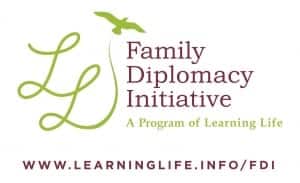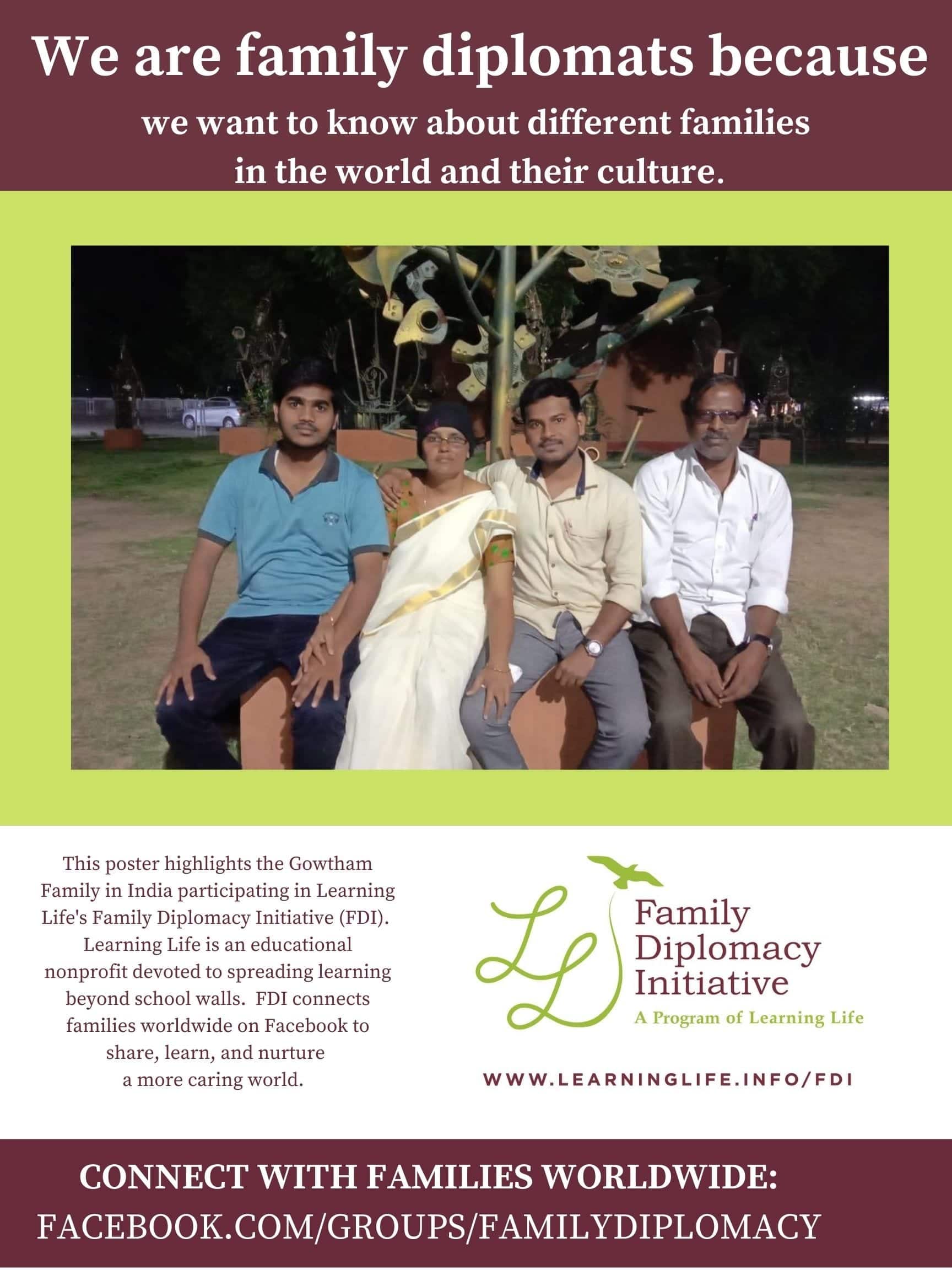What Is Family Diplomacy?
 This post, in the form of a Q&A, answers some basic questions about family diplomacy. It is the fourth in a series of posts intended to advance family diplomacy as a new form of citizen diplomacy for a more caring world. Read the first post here.
This post, in the form of a Q&A, answers some basic questions about family diplomacy. It is the fourth in a series of posts intended to advance family diplomacy as a new form of citizen diplomacy for a more caring world. Read the first post here.
What is family diplomacy?
Family diplomacy means three things:
- Families talking and learning together across lines of country, class, race and religion.
- Families publicly voicing their own and other families’ needs, concerns and aspirations.
- Families participating in the decisions that affect their lives via local to global nonprofits, governments and businesses.
To learn more about the idea of and reasons for family diplomacy, click here.
Why family diplomacy?
Our world is becoming more complex and interdependent as more people, goods, services and interactions flow across national borders. This changing global reality has triggered xenophobic, sometimes violent reactions that have been validated and amplified by political activists and opportunistic leaders. Diplomacy is rightly upheld as an important response to the mounting tensions within and between some countries, but diplomacy should not be left strictly to professionals. The internet, laptops and smart phones open exciting possibilities for citizens to be involved in diplomacy to help promote peace, prosperity and justice, but success and our global future depend in part on fresh approaches.
Families are widely valued across the world, and deeply impacted by international affairs, from global trade, to immigration, to climate change. Yet the voices of families are hardly heard in intergovernmental bodies like the United Nations, even as the voices of youth and women are rightly being amplified. Allowing families to connect online, learn, and speak publicly to their needs, concerns and aspirations via governments, businesses, nonprofits and media across the world is a fresh approach to nurturing a more caring world. Learn more about why families should be involved in diplomacy here.
How does Learning Life define family?
Families come in all shapes and sizes, so we define families broadly as two or more people related by blood, marriage, and/or a legal, caring commitment to each other. This, to us, includes same-sex and opposite-sex couples, unmarried couples, couples with or without children, single parents with one or more kids, siblings or cousins living together, grandparents living with grandchildren, and others, including adopted children and family pets. The importance of family is love, not who loves.
Learn how you can get involved in international family diplomacy here.


